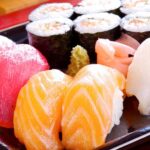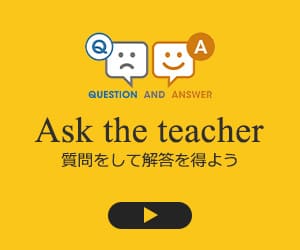定義 / Definition
[adjective]
・including each person or thing in a group
・used before a singular noun to refer to all the individual members of a set without exception.
— その他 例文 —
Not every man can be an artist.
だれでも芸術家になれるものとは限らない
Every student finished the homework.
どの生徒も宿題を終えました。
Every parent loves their child.
どの親も自分の子供を愛しています。
The train stopped at every station.
列車はすべての駅に停車しました。
Every student was afraid of Mr. Smith.
どの学生もスミス先生を怖がりました。
Every child sat still.
すべての子供たちはじっと座っていました。
She took home every present she got.
彼女はもらった贈り物をすべて家に持ち帰りました。
Their song was playing in almost every store.
彼らの歌はほとんどすべてのお店で流れていました。
Every professor had to take attendance.
すべての教授は出欠をとらなくてはなりませんでした。
I’ve read every book on the shelf.
私は棚の本をすべて読みました。
Every house looked beautiful.
すべての家が美しく見えました。
She gives me a cheerful hello every morning.
彼女は毎朝元気のよいあいさつをくれます。
Every girl loved the new, British rock band.
すべての少女たちはその新しいイギリスのロックバンドが大好きでした。
Every man in the room agreed to help rebuild the school.
部屋にいた全員が学校の再建を支援することに賛成しました。
They’ve lost every game.
彼らはどの試合にも負けてしまいました。
Every car goes through many tests and examinations before being sold.
すべての車が販売される前に多くのテストや検査を受けます。
She drank a banana smoothie every morning.
彼女は毎朝バナナ入りスムージーを飲みました。
Her daughter made her breakfast every Sunday.
彼女の娘は毎週日曜日に彼女の朝食を作りました。
Mr. Smith harvested very delicious corn every year.
スミスさんは毎年とてもおいしいコーンを収穫しました。
She drank pineapple juice every morning.
彼女は毎朝パイナップルジュースを飲みました。
She ate a plum every day.
彼女は毎日プラムを食べました。
They had tacos every Tuesday.
彼らは毎週火曜日にタコスを食べました。
A toothpick is required after every meal.
つまようじは毎食事後に必要です。
Almost every child I know loves tacos.
私が知っているほとんどすべての子どもはタコスが大好きです。
Every computer was going to be replaced with Apple computers.
すべてのコンピューターがアップル社のコンピューターと交換されようとしていました。
He has been to almost every country in the world.
彼は世界のほぼすべての国に行ったことがあります。
The room was so quiet I could hear every sound clearly.
部屋があまりに静かだったので、すべての音がはっきりと聞こえました。
Every bee was working hard to make honey.
すべてのハチがはちみつを作るために懸命に働いていました。
She is such a good speaker I heard every single word.
彼女は話しがとてもうまいので、私はひとつひとつの言葉すべてを聞きました。
Every song the seniors sang at their graduation was beautiful.
先輩たちが卒業式で歌った曲はすべて美しかったです。
There were beautiful flowers in every room of the hospital.
病院のすべての部屋に美しい花がありました。
It seemed like when I visited Japan, every girl had dyed hair.
日本に行ったとき、女の子はみんな髪を染めているように思えました。
Every good cook knows how to combine flavours to create delicious meals.
良い料理人はみんな、おいしい料理を作るために風味を合せる方法を知っています。
Every store in Japan seemed to have wonderful lighting and decorations.
日本のお店はすべて、照明や装飾が素敵なように思えました。
Every child drank lots of water after they came back inside from playing outside.
外で遊んで中に帰ってくると、すべての子どもたちはたっぷりの水を飲みました。
The news about the train crash was so big and devastating, it was in every newspaper.
列車衝突事故のニュースは非常に大規模で衝撃的だったので、すべての新聞に載っていました。
Every celebrity agrees that paparazzi can be extremely annoying and persistent.
すべての有名人はパパラッチは非常に迷惑でしつこくなりうると思っています。
Every teacher should be determined to help their students improve and see them grow.
すべての先生は生徒がよりできるようになるのを手助けし、その成長を見守る決意を持つべきです。
Every neighbor cooperated in order to catch the culprit who kept taking everyone’s flowers.
近所の人はみんな、各家の花をとり続けた犯人を捕まえるために協力しました。
Every politician must face harsh criticism and opposition from many people.
すべての政治家は多くの人からの強い批判や反発に直面しなければなりません。
Thousands of children go missing every year, but only a few are found.
何千もの子供たちが毎年行方不明になりますが、ほんの少しだけが見つけられます。
There is no way he finished every assignment the professor gave us in that amount of time.
教授が私たちに出したすべての課題を彼がその時間でできたわけがありません。
![英語・英会話の効果的な学習法|PM English[全無料] 英語・英会話の効果的な学習法|PM English[全無料]](https://pm-school.info/english/wp-content/uploads/2021/11/logot.png?1770972336)
















![中学英語やり直し[中学英文法 基礎確認問題]](https://pm-school.info/english/wp-content/uploads/2023/09/kiso-1-150x150.jpg)
![中学英語やり直し[中学英文法の基礎確認問題]](https://pm-school.info/english/wp-content/uploads/2023/09/kisokakunn-150x150.jpg)
![中学英語やり直し[関係代名詞と接続詞のthatの違い]](https://pm-school.info/english/wp-content/uploads/2023/09/kankei-setuzoku-150x150.jpg)
![中学英語やり直し[中学英語の復習問題]](https://pm-school.info/english/wp-content/uploads/2023/09/kiso-150x150.jpg)
![中学英語やり直し[基礎英文法の復習問題]](https://pm-school.info/english/wp-content/uploads/2023/09/fukusyuumondai-150x150.jpg)









![[列車 電車]に関わる英語の表現を学ぼう](https://pm-school.info/english/wp-content/uploads/2022/11/train-150x150.jpg)



![英語・英会話の効果的な学習法|PM English[全無料] 英語・英会話の効果的な学習法|PM English[全無料]](https://pm-school.info/english/wp-content/uploads/2021/11/logom.png?1770972336)